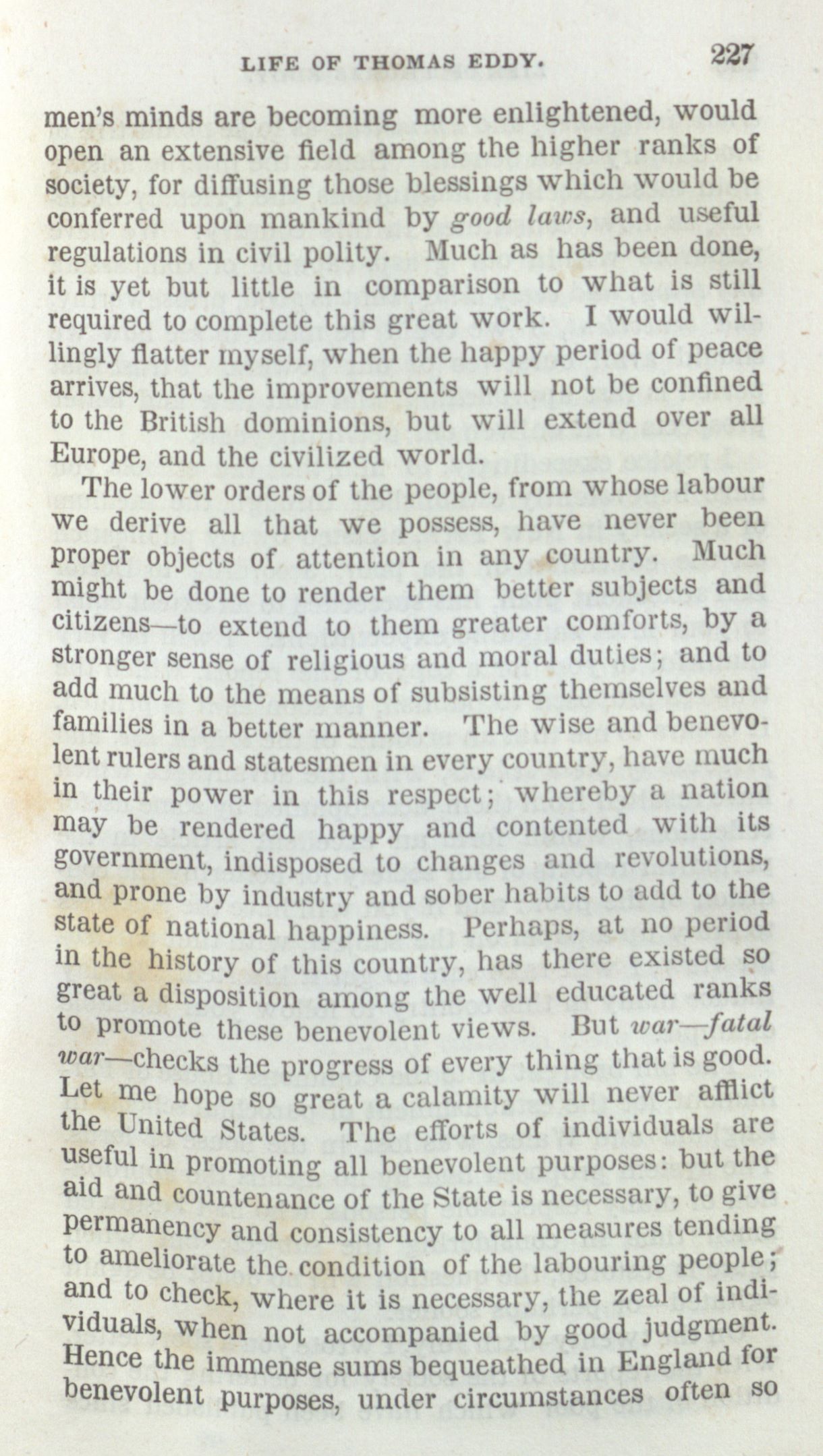men's minds
are becoming more enlightened, would
open an extensive field among
the higher ranks of
society, for diffusing those blessings which
would be
conferred upon mankind by good
laws, and useful
regulations in civil polity. Much as has
been done,
it is yet but little in comparison to what is
still
required to complete this great work. I would wil-
lingly
flatter myself, when the happy period of peace
arrives, that the
improvements will not be confined
to the British dominions, but will
extend over all
Europe, and the civilized world.
The lower orders of the people, from whose labour
we derive all that
we possess, have never been
proper objects of attention in any
country. Much
might be done to render them better subjects
and
citizens—to extend to them greater comforts, by a
stronger
sense of religious and moral duties; and to
add much to the means of
subsisting themselves and
families in a better manner. The wise and
benevo-
lent rulers and statesmen in every country, have much
in
their power in this respect; whereby a nation
may be rendered happy
and contented with its
government, indisposed to changes and
revolutions,
and prone by industry and sober habits to add to
the
state of national happiness. Perhaps, at no period
in the
history of this country, has there existed so
great a disposition
among the well educated ranks
to promote these benevolent views. But
war—fatal
war—checks the progress of
every thing that is good.
Let me hope so great a calamity will never
afflict
the United States. The efforts of individuals are
useful
in promoting all benevolent purposes: but the
aid and countenance of
the State is necessary, to give
permanency and consistency to all
measures tending
to ameliorate the condition of the labouring
people;
and to check, where it is necessary, the zeal of
indi-
viduals, when not accompanied by good judgment.
Hence the
immense sums bequeathed in England
benevolent purposes, under circumstances often so

